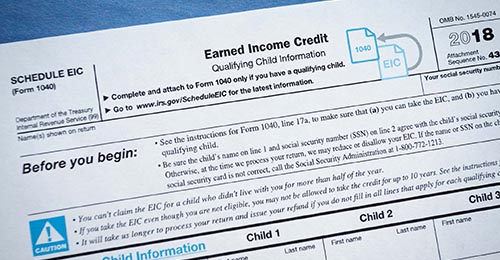Is a Roth Conversion Right for You? But Be Careful, They Can No Longer Be Undone!

Tax Reform Suspends the Tax Deduction for Employee Business Expenses
May 11, 2018
Procrastinating on Filing Your Taxes?
June 7, 2018Roth IRA accounts provide the benefits of tax-free accumulation and, once you reach retirement age, tax-free distributions. This is the reason why so many taxpayers are converting their traditional IRA account to a Roth IRA. However, to do so, you must generally pay tax on the converted amount. After making a conversion, your circumstances may change, and you may find yourself wishing you had not made the conversion. In the past, you could change your mind later and undo the conversion. But that option is no longer available under tax reform. So, be careful: once a conversion is made, there is no going back.
Timing is everything, and a favorable time to make a traditional IRA to Roth IRA conversion is a year when your income is abnormally low or the value of your traditional IRA has declined. You can also convert portions of your traditional IRA over a number of years, thereby gradually converting the traditional IRA to a Roth IRA, spreading the tax liability over a number of years, and keeping it in a lower tax bracket. If you previously made non-deductible contributions to a traditional IRA, those amounts can be converted tax-free but must be converted ratably with the other funds in the traditional IRA.
Many taxpayers overlook some great opportunities to make conversions, such as years when your income is abnormally low or a year when your income might even be negative due to abnormal deductions or business losses. Even the new higher standard deductions may offer a taxpayer the opportunity to convert some or all of their traditional IRA to a Roth IRA without any conversion tax.
Everyone’s financial circumstances are unique, and issues to consider include:
- Will there be enough years before retirement to recoup the conversion tax dollars through tax-free accumulation?
- Is your income low enough or are your deductions high enough to enable a tax-free or minimal tax conversion?
- Will you be in a lower or higher tax bracket in the future?
- Where would the money to pay the conversion tax come from? Generally, it must be from separate funds. If it is taken from the IRA being converted, for individuals under age 59½, the funds withdrawn to pay the tax will also be subject to the 10% early distribution penalty, in addition to being taxed.
- It might be appropriate for you to design your own custom conversion plan over a number of years, rather than converting everything at once.
Conversions can be tricky, and once made, they can no longer be undone. If you are considering a conversion, contact us to schedule an appointment so that we can help you properly analyze your conversion options or develop a conversion plan that fits your particular circumstances. Further, we can connect you with financial consultants within our network to property analyze your investment portfolio.




